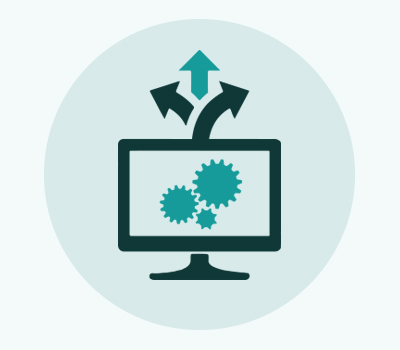Decision Support & Trade-off Evaluation
Jagger’s Law:
You can’t always get what you want
But if you try sometimes well you just might find
You get what you need.
~Jagger and Richards 1969
 Determining robust solutions and effectively navigating trade-offs in multi-disciplinary and multi-stakeholder resource and environmental problems is challenging. A common product in these settings are voluminous dense technical reports that are often poorly disseminated. The rate of “uptake” of how resource managers are able to locate and apply the advice in these large reports to their real-world real-time circumstances are at best – mixed. This problem is exacerbated through time as knowledgeable staff retire or move to other positions. Additionally, standard structured decision making techniques sometimes hinge on the premise that through creative identification of alternative actions the decision problem can be boiled down to a handful of choices between a few concrete alternatives that endure over a range of exogenous conditions. For simpler problems with fewer objectives and performance indicators at modest spatial scales, this is possible, but reconciling to a win-win-win-win at large scales over many objectives is too often elusive or short-lived.
Determining robust solutions and effectively navigating trade-offs in multi-disciplinary and multi-stakeholder resource and environmental problems is challenging. A common product in these settings are voluminous dense technical reports that are often poorly disseminated. The rate of “uptake” of how resource managers are able to locate and apply the advice in these large reports to their real-world real-time circumstances are at best – mixed. This problem is exacerbated through time as knowledgeable staff retire or move to other positions. Additionally, standard structured decision making techniques sometimes hinge on the premise that through creative identification of alternative actions the decision problem can be boiled down to a handful of choices between a few concrete alternatives that endure over a range of exogenous conditions. For simpler problems with fewer objectives and performance indicators at modest spatial scales, this is possible, but reconciling to a win-win-win-win at large scales over many objectives is too often elusive or short-lived.
An innovative technique pioneered by ESSA for the more messy situations we gravitate towards is “turn-taking” optimization (TTO). This approach leverages cloud computing, coupled modelling and optimization to flexibly balance multiple high-value objectives over time. Rather than attempting to optimize conditions for all valued performance indicators every year, turn-taking creates flexibility and opportunities for different indicators to be successful in different years, informed by the frequency that individual objectives and needs should be met. As an individual TTO indicator is successful in a particular year, its priority in one or more subsequent years is reduced (and vice versa). While making trade-off decisions using TTO will not solve every trade-off, when used, resource managers are able to find more values and objectives “get what they need” and lessen the burden of picking “winners and losers”.
While a powerful tool in its own right, we have found that the utility of decision analysis is greatly enhanced when used in conjunction with other skills at which ESSA excels, including multi-stakeholder facilitation, modelling and decision support tool development. While ESSA’s approach is fundamentally “science and people first”, we have observed the longevity of client outcomes greatly extended through creation of decision support tools when the decision and trade-off problem has at least three of the following four attributes:
- A high-stake decision, involving balancing difficult trade-offs;
- The decision needs to be repeatedly made (not “set it and forget it”);
- The mental “arithmetic” is time consuming & complex and defies simple “back of the envelop” consequence calculations; and
- There is relatively frequent turnover in responsible staff (thereby creating expensive training costs & loss of experience that can be mitigated through automated tools that capture disciplinary knowledge).
When these attributes are present, decision support tools are one of the best ways of memorializing and “passing on” the hard-won science we achieve with our clients in participatory facilitated settings. ESSA has a rich history of developing a wide range of decision support solutions for many clients and projects. Some of these have continued on and been used by multiple clients to address specific problems (e.g., real-time water management), effects analyses, and other impact studies. Others have become part of open source communities.
ESSA has a lengthy and proven track record as the leading experts in systems thinking and decision support. We offer a full range of decision support services and creative participatory facilitation techniques. As practiced by ESSA, our approach to decision support solutions involves a highly innovative, creative blend of:
- Subject matter expertise in systems ecology and ecological modeling;
- Devising effective facilitated participatory engagement processes;
- A bias toward multi-system (submodel) coupling and integration;
- Designing and building durable, highly intuitive user interfaces; and
- Software development expertise (databases, programing languages, data visualization tools, GIS).
Key projects showcasing these services:
- Okanagan Fish/Water Management Tool
- Nicola Water Management Tool
- Ecological Flows Tool multi-species effects analysis investigations
- Turn-Taking Optimization for large scale multi-species hydrosystem operation
- Columbia River Basin salmon recovery
- Cheakamus Water Use Plan
